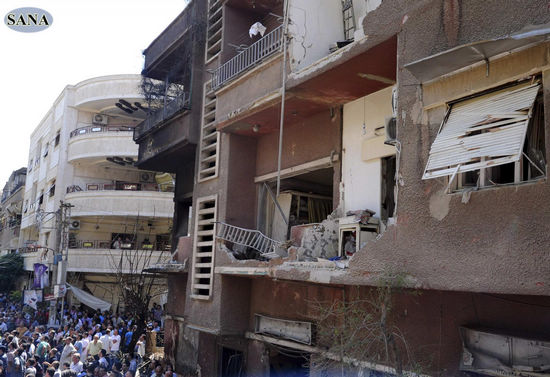ICRC chief visits Syria for humanitarian talks
(Xinhua) Updated: 2012-09-04 06:43
 |
|
A view shows the wreckage after a car bomb exploded in the Jaramana district of southeast Damascus September 3, 2012, in this handout photograph released by Syria's national news agency SANA. [Photo/Agencies] |
DAMASCUS - Head of the International Committee of the Red Cross (ICRC) Peter Maurer set foot in the Syrian capital of Damascus on Monday for talks with top Syrian officials, including President Bashar al-Assad, on humanitarian issues, well-informed sources told Xinhua.
During his three-day visit, Maurer will meet with the Syrian president on Tuesday and will also meet separately with Foreign Minister Walid al-Moallem, Health Minister Salam Al-Nayef, among other high-level officials.
He will also meet with Minister of National Reconciliation Ali Haidar and Head of the Syrian Arab Red Crescent (SARC) Abul-Rahman al-Attar, sources told Xinhua.
The talks will mainly touch upon the rapidly deteriorating humanitarian situation and the difficulties faced by the ICRC and the SARC as they attempt to reach people affected by the armed conflict, according to the ICRC.
The spiraling violence in some Syrian cities has forced hundreds of thousands of people to flee their areas to safer places, most notably in the capital Damascus. Some others fled the country to neighboring states.
A recent statement issued by the United Nations said 2.5 million people are now estimated to have been affected by the crisis and in need for help. The new tally said over 1 million have been internally displaced, and more than 200,000 people have crossed into neighboring Lebanon, Jordan, Turkey and Iraq.
Most of the displaced Syrians have stayed with their relatives in Damascus or sought refuge in public schools and parks.
Despite difficult working conditions, the ICRC and the SARC have provided nearly 180,000 people with food and other essentials in and around Damascus and in Aleppo, Homs and elsewhere in the country since mid-July.
Since the beginning of the year, the two organizations have distributed relief items to more than 800,000 people, most of them displaced, and ensured that more than 1 million people have enough clean water.






